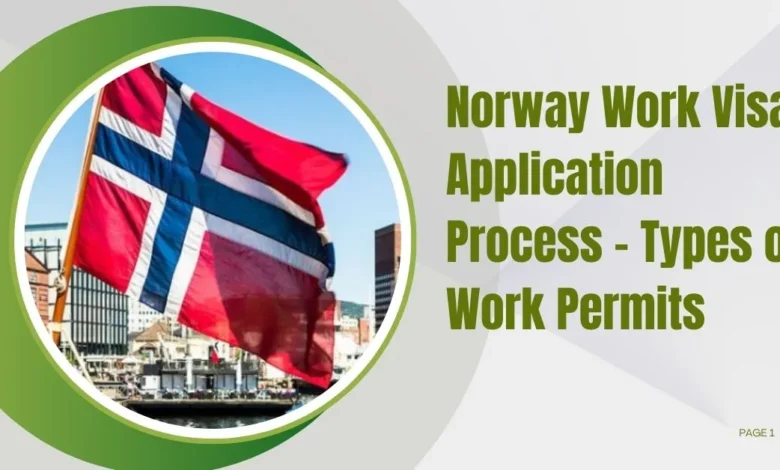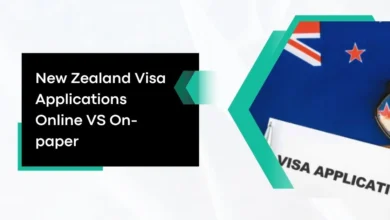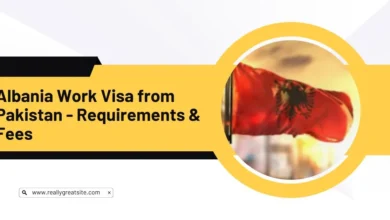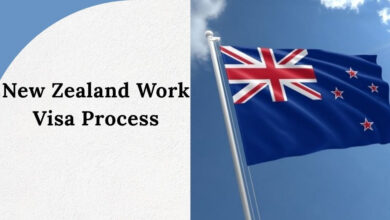Norway Work Visa Application Process – Types of Work Permits

Imagine trading your daily routine for a life surrounded by breathtaking fjords, vibrant cities, and a society built on trust and equality. Norway isn’t just a postcard destination; it’s a place where a healthy work-life balance is a reality, not just a slogan. The dream of living and working in this prosperous Scandinavian country is within your reach, but it starts with one crucial step: securing a Norwegian work visa.
This comprehensive guide is your first companion on this exciting journey. We will demystify the entire process, from understanding the different visa types tailored for skilled professionals, seasonal workers, and ambitious entrepreneurs to the step-by-step application process. We’ll outline the key requirements you must meet, including the essential salary thresholds set to ensure fair pay.
Most importantly, we’ll highlight the incredible benefits that make Norway a top destination for expats, from its world-class healthcare and generous social security to the clear pathway toward permanent residency. Let’s turn your Norwegian dream into a well-planned reality.
Section for these reports: https://www.udi.no/en/statistics-and-analysis/statistics/
Overview of Norway’s Work Visa System:
Norway is part of the Schengen Area, which means it allows free movement across several European countries once you’re legally inside. However, if you are not an EU/EEA citizen, you’ll need to apply for a residence permit if you plan to stay longer than 90 days. There are different types of residence permits depending on your job and your reason for moving to Norway.
Types of Norwegian Work Visas:
1. Skilled Worker Visa:
- Who it’s for: Professionals with specific skills or higher education qualifications.
- Requirements:
- A job offer from a Norwegian employer.
- Relevant education or work experience.
- Proof that the salary offered meets the Norwegian wage standards for your profession.
- Industries: This visa is popular among those in IT, engineering, medicine, and education.
2. Seasonal Worker Visa:
- Who it’s for: Workers needed for short-term employment, usually in agriculture, tourism, or seasonal industries.
- Requirements:
- A job offer for seasonal work that fits within a specific time frame (e.g., summer or winter).
- Proof that you have the required skills for the job.
- Proof of adequate accommodation for the duration of your employment.
- Industries: Common in agriculture, tourism, fishing, and hospitality.
3. Self-Employed Visa:
- Who it’s for: Individuals who wish to start their own business in Norway.
- Requirements:
- A detailed business plan showing how your business will succeed.
- Evidence of financial resources to support your business.
- Documentation showing your professional qualifications and past entrepreneurial experience.
- Industries: Popular with entrepreneurs, freelancers, and consultants in fields like tech, finance, and creative industries.
4. Intra-Company Transfer Visa:
- Who it’s for: Employees of multinational companies who need to transfer to a Norwegian branch.
- Requirements:
- A transfer letter from your company.
- Proof of your role and experience in the company.
- Documentation showing that the company meets Norwegian business standards.
- Industries: Most common in tech, finance, consulting, and manufacturing sectors.
5. Highly Qualified Worker Visa:
- Who it’s for: Workers with a master’s degree or equivalent higher education qualifications.
- Requirements:
- A job offer related to your qualifications.
- Proof of high wages or salary above a set threshold.
- Employment in specialized fields such as science, medicine, or engineering.
Step-by-Step Application Process for a Norway Work Visa:
To apply for a work visa for Norway, follow these organized steps:
1. Secure a Job Offer:
Before applying for a visa, you must first have a job offer from a Norwegian employer. You can search for jobs on official job boards , or through international job platforms.
2. Identify the Correct Type of Residence Permit:
Once you have a job offer, you’ll need to determine which type of residence permit you should apply for. This will depend on the type of work you plan to do in Norway (skilled worker, seasonal, self-employed, etc.).
3. Apply Online Through the UDI Portal:
The next step is to apply online via the official Norwegian Directorate of Immigration (UDI) website. The online application is straightforward, but ensure that you provide accurate and complete details.
4. Prepare the Required Documents:
Gather all necessary documentation to submit with your application. Some of the most commonly required documents include:
- Passport (valid for at least 6 months after your expected entry date).
- Job contract or a letter from your employer.
- Proof of qualifications, such as diplomas or work experience certificates.
- Financial proof, such as bank statements or tax returns (especially for self-employed applicants).
- Accommodation details (for seasonal workers).
5. Biometrics Appointment:
After submitting your application, you may need to visit an embassy or visa center to provide your biometric information (fingerprints and a photo).
6. Pay the Visa Application Fee:
The application fee for most work visas is around NOK 6,300 (~$600 USD). This fee is non-refundable, so ensure that your application is complete and accurate before submitting it.
7. Wait for Processing:
The average processing time can vary depending on the visa type, your country of residence, and the time of year. Typically, processing can take 1-3 months, though seasonal worker visas may take longer.
8. Receive a Decision:
Once your application is processed, you will receive a decision. If approved, you will be granted a residence permit, allowing you to legally live and work in Norway.
Benefits of Norway Work Visa
- workweek High Wages and Excellent Work-Life Balance: Norway has a high average salary and a culture that prioritizes a healthy balance between work and personal life. The standard work week is typically 37.5 to 40 hours, with a minimum of 25 paid vacation days per year.
- Comprehensive Social Security: As a legal resident and worker, you are covered by Norway’s National Insurance Scheme. This provides access to an extensive social security network, including universal public healthcare, unemployment benefits, and generous parental leave policies.
- Strong Labor Rights: Norwegian labor laws are highly protective of employees, with regulations governing working hours, overtime pay, and termination. Many industries have collective agreements that ensure fair pay and working conditions.
- Pathway to Permanent Residency: A work visa, particularly the Skilled Worker permit, can be a pathway to permanent residency after a certain period of continuous employment and residence.
Tips to Ensure Your Visa Application is Successful:
- Be thorough with documentation: Incomplete or unclear documents are a common reason for visa rejections. Ensure that every required document is provided, and if necessary, get them certified and translated into Norwegian or English.
- Check salary requirements: Norway has strict wage standards to ensure that foreign workers are paid fairly. Make sure your employer offers a salary that meets or exceeds these standards.
- Prepare for an interview: In some cases, you may be asked to attend an interview at the Norwegian embassy. Be ready to explain your job, qualifications, and why you want to work in Norway.
- Apply early: Processing times can be long, especially for seasonal jobs or self-employed permits. Apply at least 3 months before your intended entry.
- Double-check the validity of your passport: Make sure your passport is valid for at least six months after your expected arrival date.
Important Links and Resources:
- Norwegian Directorate of Immigration (UDI): The official government agency overseeing visa applications.
Visit UDI - Job Search in Norway: Explore job opportunities through NAV or other major job portals.
- Visa Fee Information: Up-to-date fee structure for residence permits.
UDI Fee Information
Conclusion:
The application process for a work visa in Norway can be complex, but with the right preparation and understanding of the requirements, you can successfully navigate it. Whether you’re a skilled worker, seasonal employee, or entrepreneur, Norway offers excellent opportunities to live and work in one of the most vibrant countries in Europe.
Frequently Asked Questions
What is a Norway work visa?
A Norway work visa is permission granted to individuals allowing them to legally live and work in Norway for more than 90 days.
What are the types of work visas available in Norway?
Norway has different kinds of work visas, such as visas for skilled workers, visas for casual workers, visas for self-employed people, and visas for people who want to move within the same company.




